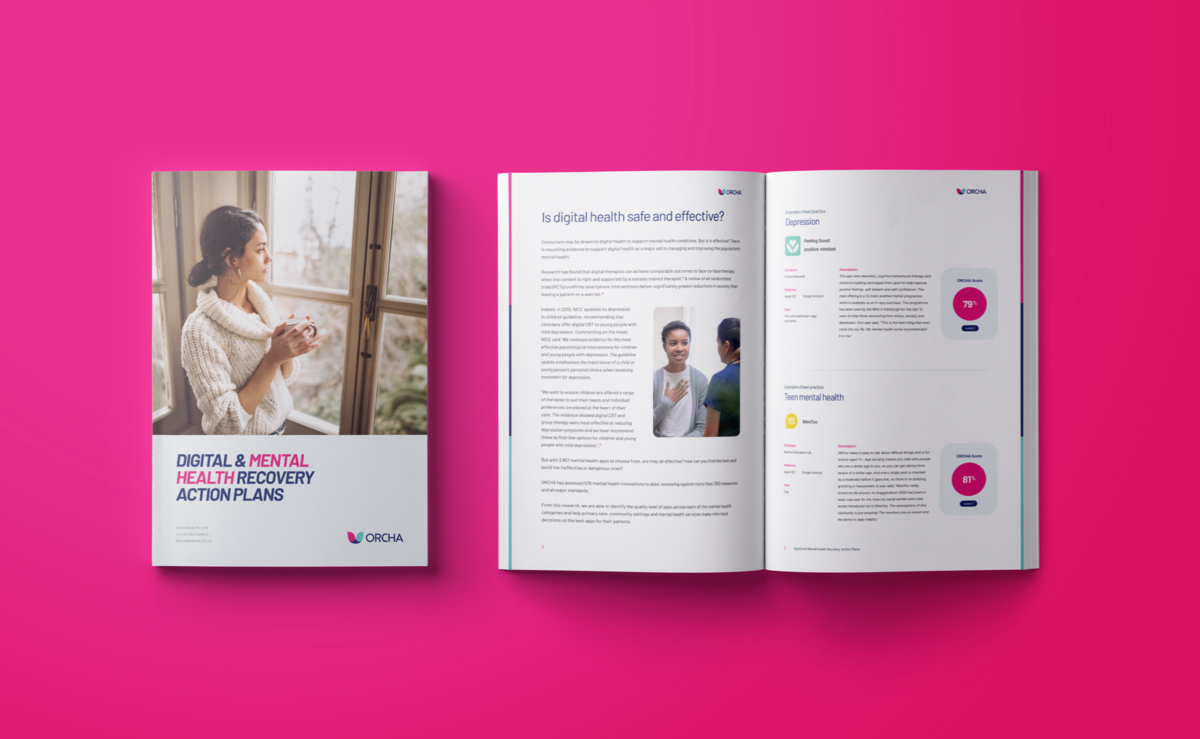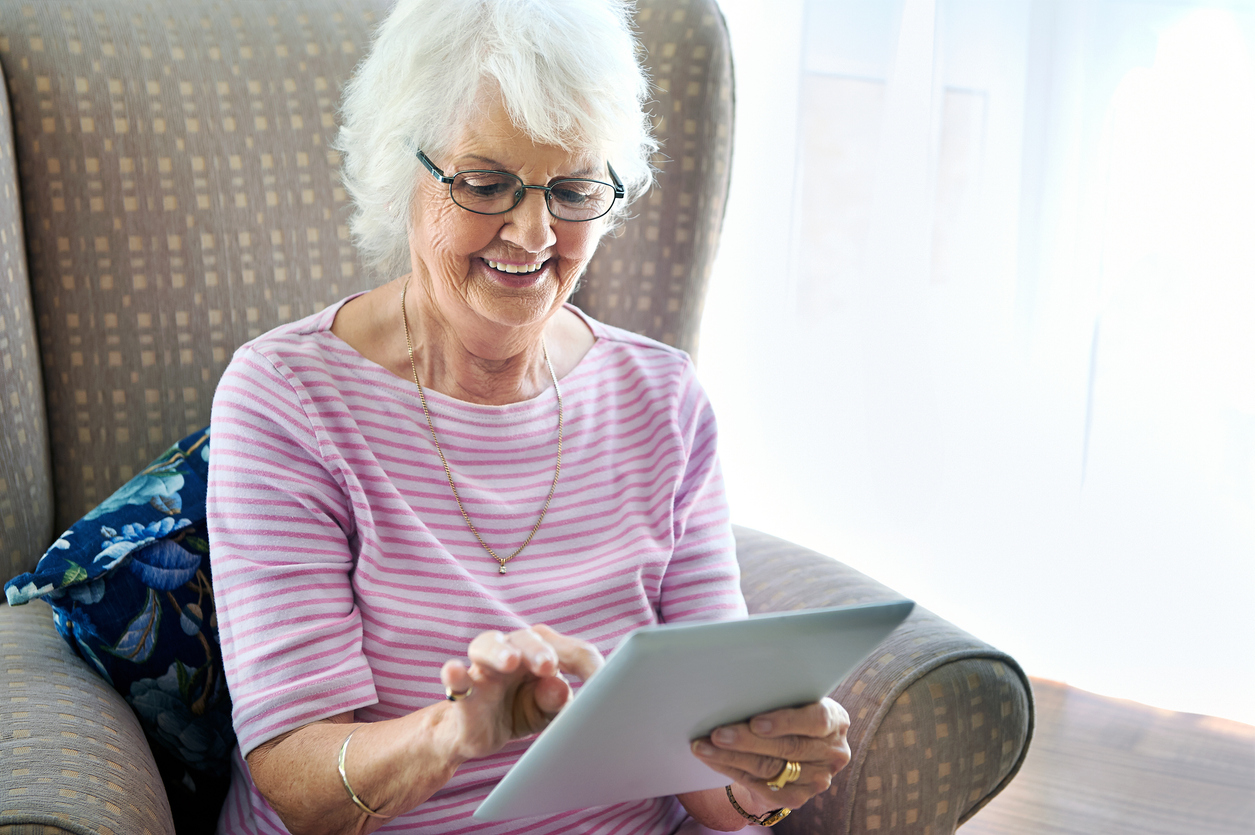The prospect of delivering health and social care through a winter season during the COVID-19 pandemic requires new ways of working. How can those at greatest risk access digital tools help better manage their health?
In this newsletter, we share: How one social care provider is using iPads to help the elderly better manage their health, highlight the top 5 apps for winter pressures, and How COPD apps can deliver an ROI as well as improve people’s health.
The first elderly care health app library & tablet initiative
Whilst technology will never replace the human touch, it can enhance people’s lives. Engaging apps have been designed to help older people tackle many of the health challenges they face. From mental stimulation to physical exercise, apps offer new ways for older people to improve their health; often also connecting with others, clinicians, or family. Home Instead was the first care provider to launch a health app library and tablet scheme for its clients in the UK. It worked with ORCHA to build a library and curate a list of apps perfect for its clients.
To make it easy to reap the benefits of these apps, especially for those who find using a mobile difficult or who have no network coverage, Home Instead built tablets for clients, with a personalized selection of favorite apps already installed and ready to use.
Top 5 apps for winter pressures
With expected rises in COVID-19, lung health issues, arthritis, mental health issues, and a need to support our elderly, here we share a top-scoring app for each:
For Covid-19: NHS 24: COVID-19 and flu information. From NHS Scotland, this app provides people in Scotland with the latest health information on the coronavirus and flu. It features interactive forms, such as helping to identify if you should be tested for COVID-19 or to find out if you are eligible for a free flu vaccine and if you do a link to the right booking form. and the ability to see where a flu jab is available. Free. (ORCHA score 67%)
For asthma, COPD and cystic fibrosis: NuvoAir Home. This app enables you to take a lung function test at home, including lung volume, peak flow, and ratio. Data can be shared with your healthcare provider. It has been through multiple peer-reviewed studies and reports a 30.9% reduction in consultations and a 39.8% reduction in emergency appointments for Cystic Fibrosis patients. There is a cost although a starter kit may be provided if a clinic is willing to participate in a trial. (ORCHA score 94%)
For the elderly: Stronger Together. Designed for people living with chronic conditions, senior citizens, and caregivers, this app helps you connect with peers and experts. You can join daily programs, live events, and group discussions facilitated by experts. Free. (ORCHA score 72%)
For arthritis and MSK: Pathway through Pain. An online course to help you manage chronic musculoskeletal pain. The program guides you through all the elements of an intensive pain management program. You can work through the course at your own pace as there’s no time limit for completion. £40 or free by referral in some areas. (ORCHA score 82%)
For mental health: Wysa. An emotionally intelligent chatbot that uses AI to react to the emotions you express. Reflect on your day, and practice CBT techniques and mindfulness exercises. Extra support is available with professionals. Around £5 per month and a therapist package from £200 for eight sessions over two months. (ORCHA score 91%)
ORCHA evaluates apps against 350 standards and measures, giving an overall score out of 100. Any app scoring above 65% meets our quality threshold. Any score below 65% indicates that an app has some issues that should be investigated further before using, and a score below 45% indicates that an app has considerable issues or challenges and in its current form is potentially unhelpful or unsafe.
What ROI will COPD apps give you?
There have been numerous clinical studies around the impact COPD apps can deliver on services. Our health economists have built an interactive model that will give you an accurate picture of the savings your service should make by adopting digital health.
For example, across 27 GP practices in West Lancashire, if an app library enables just 20% of COPD patients to engage with digital health, a £78,854 reduction in healthcare costs can be expected, delivering an annual return of £13 per £1 invested.
Email hello@orchahealth.com to request an estimate.




